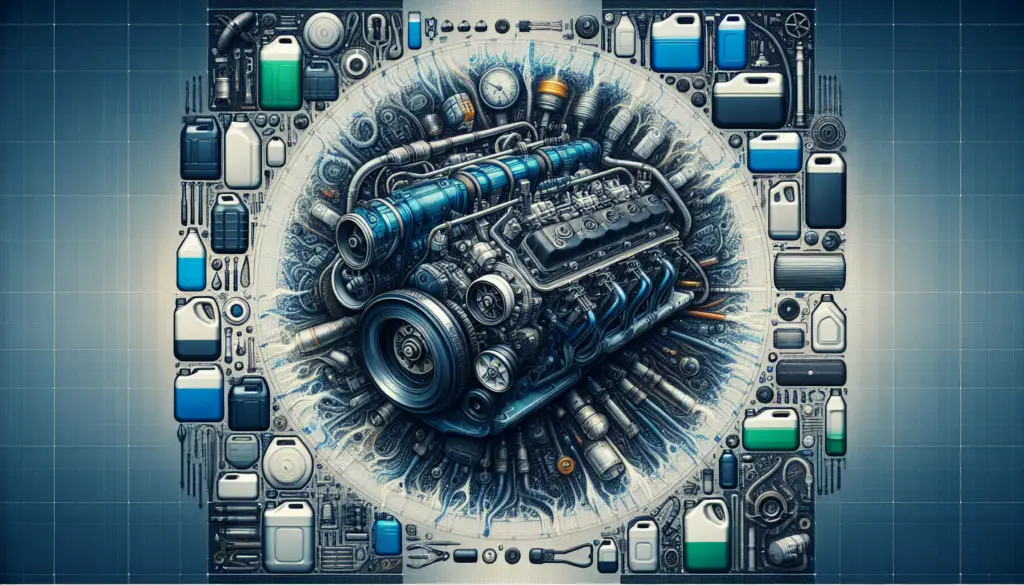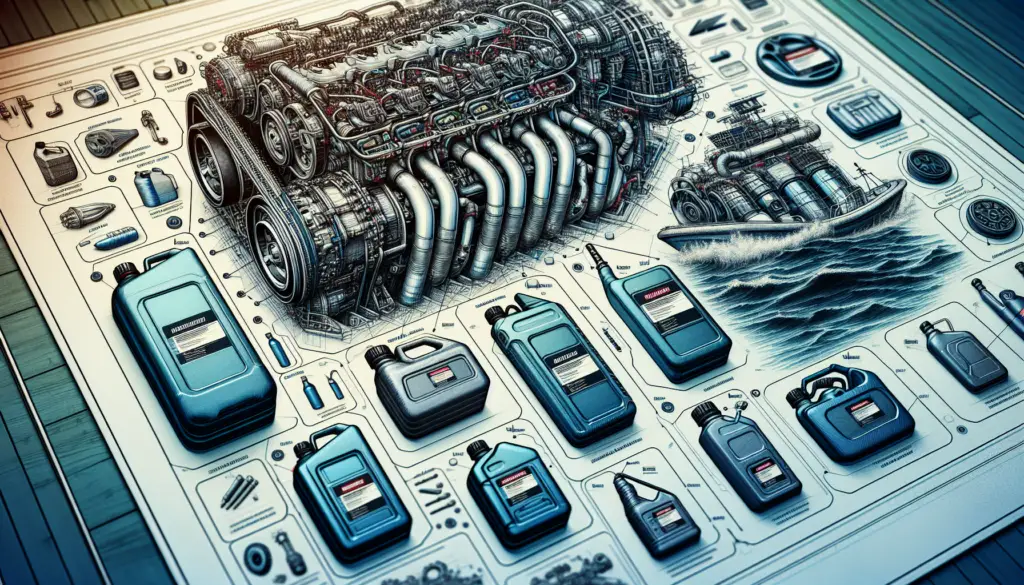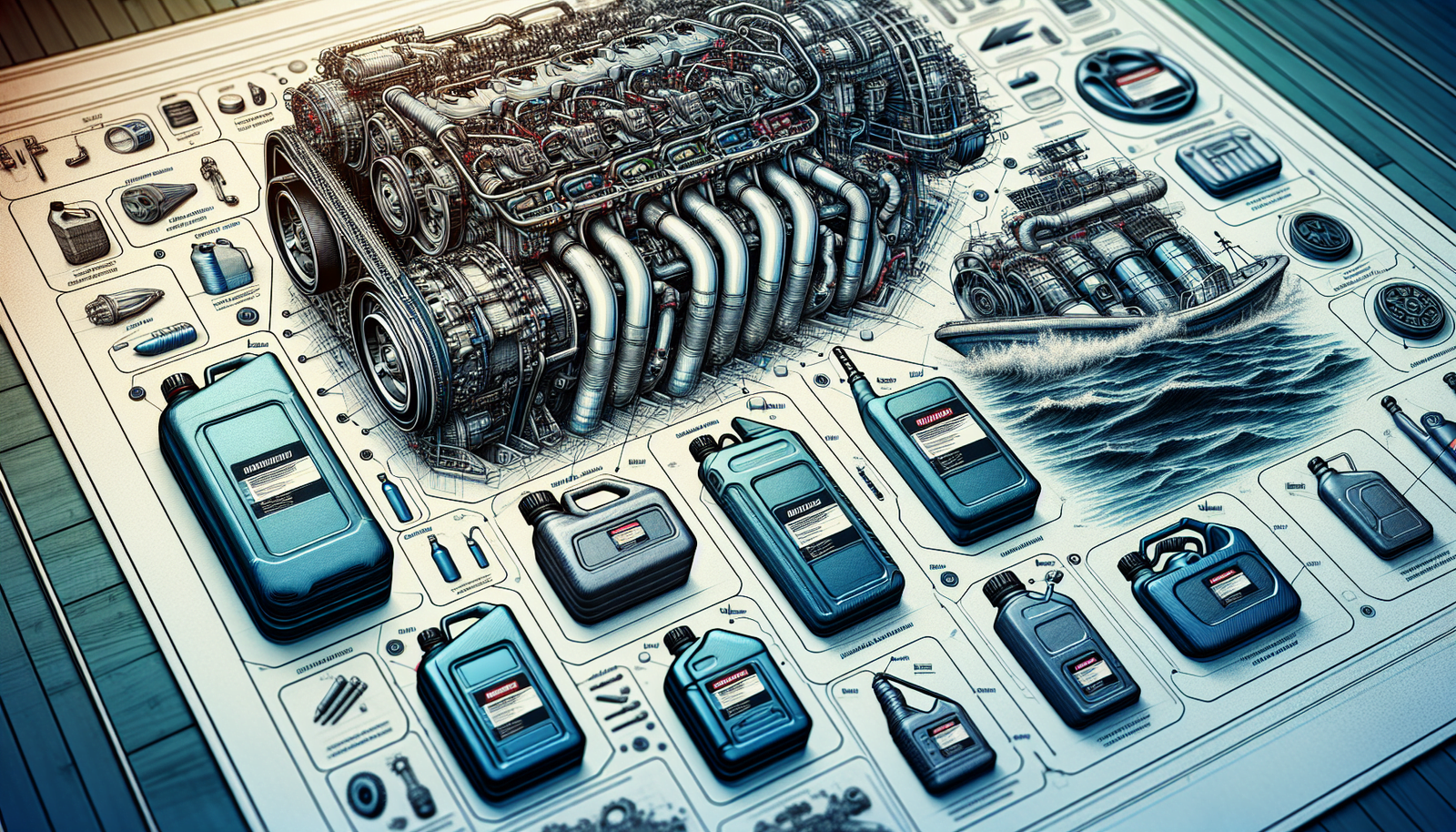You’ve invested a lot into your boat, including time, money, and countless wonderful memories. Naturally, you want to ensure that it continues to run smoothly and efficiently. The way you handle your boat’s fuel plays a crucial part in this. The article “Proper Fuel Management For Boat Engines” is a guide dedicated to assist you to maximize the life of your boat engine, reduce costly repairs, and to increase overall performance by managing your boat’s fuel properly. From selecting the right type of fuel to understanding fuel stabilization and testing for water contamination, this manual discusses the vital aspects of proper fuel management.

Understanding Fuel Management
Before we dive into the specifics about fuel management for boat engines, let’s start with the basics. Fuel management, at its core, is a set of practices applied to maintain, control, and monitor fuel consumption and inventory in any type of vehicle that uses an engine. This includes your favorite fishing vessel or weekend cruiser. By applying fuel management procedures, you ensure the best engine performance and longevity for your boat’s journey.
The Basics of Fuel Management
Fuel management is fundamentally about getting the most out of every drop of fuel you put into your boat motor. You’ll need to get to grips with various factors like the type of fuel your engine runs on, the fuel system components, and how to maintain them.
Importance of Proper Fuel Management in Boat Engines
The benefits of proper fuel management in boat engines cannot be overstated. It helps reduce engine wear, improves fuel efficiency, and prevents costly damages from issues such as fuel contamination.
Concept of Fuel Efficiency
Fuel efficiency, used interchangeably with fuel economy, is a measure of how long a vehicle can travel on a certain amount of fuel. Inefficient fuel consumption will not only dent your finances at the pump, but it’ll also reduce your boat’s range and increase its environmental impact.
Different Types of Boat Engine Fuels
Boat engines typically run on a variety of fuel types, and understanding the key differences can be really handy.
Diesel
Diesel is the most energy-dense fuel, meaning it provides more energy per gallon compared to gasoline. This makes diesel engines more fuel-efficient but often at a higher purchase cost.
Gasoline
Gasoline engines are generally cheaper to buy and maintain than diesel engines. They also tend to be quieter and produce fewer vibrations.
Ethanol and other Biofuels
Some boat engines can run on a percentage of ethanol or other biofuels mixed with gasoline. Biofuels are considered more environmentally friendly because they’re produced from renewable sources.
Pros and Cons of Each Fuel Type
Each type of fuel has its strengths and weaknesses. Diesel gives high energy output but is usually more expensive. Gasoline is more affordable and accessible but less efficient. Biofuels are sustainable but not universally accepted in boat engines.
Choosing the Right Fuel for Your Boat Engine
Understanding the nuances of boat fuel is the first step towards choosing the right one.
Considerations for Fuel Type
When it comes to choosing fuel for your boat engine, you need to consider factors like engine compatibility, availability, cost, and environmental impact.
Optimizing Fuel for Your Specific Engine
No matter the fuel type, optimizing fuel involves tuning the engine for optimum combustion and adjusting the boat load for balanced weight distribution.
Understanding Fuel Requirements
To understand the fuel requirements of your boat engine, refer to the manufacturer’s guidelines. They will detail the optimal fuel type, fuel-to-air ratio, and suitable additives to enhance engine performance.
Fuel-Related Boat Engine Components
Let’s look at the main components of boat engine fuel systems.
Fuel Pumps
The fuel pump plays a crucial role in transferring fuel from the tank to the engine. A dysfunctional fuel pump may lead to poor engine performance or a total engine shutdown.
Fuel Filters
Fuel filters are designed to remove impurities from the fuel before it reaches the engine. Clean fuel equals a healthy engine.
Fuel Injectors
Fuel injectors are responsible for delivering the correct amount of fuel into the engine’s combustion chamber.
Carburetors
A carburetor mixes fuel with air in a precise ratio for combustion. Carbureted engines lean towards simplicity over modern fuel injection systems.

Maintenance of Boat Engine Fuel Systems
Keeping the fuel system in check is vital for a smooth-running engine.
Routine Check-up and Maintenance
Routine maintenance involves regular inspections and replacements of parts like filters and injectors, and cleaning of parts like carburetors.
Common Fuel System Issues
Most common fuel system issues include water contamination, fuel leakage, blocked fuel lines, or faulty fuel pumps.
Troubleshooting Fuel System Problems
Troubleshooting involves diagnosing the issue and fixing it either by cleaning, repairing, or replacing the faulty component.
Winterizing and De-Winterizing a Boat Engine Fuel System
To ensure optimal performance, your boat’s fuel system requires special care during winter and spring.
Winter Storage Preparation
Winterizing broadly involves protecting your engine from extreme cold conditions that could damage the fuel system components.
Spring Prep and Restarting Engine
De-winterizing, on the contrary, prepares your boat for the warmer months. This includes checking and cleaning fuel lines, checking fuel quantity and quality, and starting up the engine to ensure operational readiness.
Fuel Stabilizers and Antifreeze
Fuel stabilizers can help your fuel last during storage, while antifreeze can protect your engine from freezing temperatures.
Fuel Efficiency Techniques for Boat Engines
Let’s look at practical ways to save fuel.
Driving Techniques for Improved Efficiency
Driving techniques matter! Smooth throttle application, keeping to speed limits, and reducing idling can significantly enhance fuel efficiency.
Proper Engine Tuning
By adjusting the air-fuel mixture to the optimal level, your engine will run more efficiently and consume less fuel.
Balancing Boat Load
An evenly distributed weight allows the boat to balance well on the water thus requiring less engine power, leading to fuel savings.
Environmental Impact and Regulations
Boating is indeed enjoyable, but it also has an impact on the environment. Compliance with regulations is necessary for sustainable boating.
Reducing Emissions from Boat Engines
Practices like regular engine tune-ups, using cleaner fuels, and efficient driving techniques can help lower boat engine emissions.
Compliance with Marine Fuel Regulations
Some countries have regulations on boat fuel types, mandatory emission levels, and safety practices which must be adhered to.
Environmentally-Friendly Fuel Choices
Biofuels, hybrid, and electric engines are greener alternatives that cause less environmental harm.
Technological Advances in Boat Engine Fuel Management
Technology has resulted in breakthroughs in how we manage boat engine fuel.
Fuel Management Systems
These systems monitor real-time fuel consumption, inform the user about inefficiencies, and provide insights on improving fuel economy.
Electronic Fuel Injection (EFI)
EFI systems use sensors and computers to deliver precise amounts of fuel to the engine, thus enhancing efficiency and performance.
Use of Alternative Energy Sources
Solar and wind are alternative energy sources increasingly used in boating. They not only save on fuel but also reduce environmental degradation.
Safety precautions when handling boat engine fuel
Boat engine fuel, unfortunately, carries several risks. It’s essential to know safety procedures.
Safe Fuel Handling and Storage
Fuel should always be stored in a cool, well-ventilated place and preferably in an approved container. Smoking and open flames should be avoided around fuel.
Fire Safety Procedures
Fire safety equipment should be available on the boat, and everyone should be familiar with how to use it.
First Aid in Case of Fuel-Related Accidents
Accidents can occur when dealing with fuel. Exposure can cause skin irritation, or its fumes can cause health issues. Proper first aid measures and protective gear should be in place.
Proper fuel management for your boat engine extends beyond just filling the tank. It involves understanding different fuel types, engine requirements, maintenance procedures, investing in new technology, and ensuring safety measures. Implementing these practices significantly improves engine performance, fuel efficiency, and creates worthwhile boating experiences.


[…] fuel lines are your engine’s feeding tubes, regularly checking them for leaks, cracks or bulges can prevent a host of issues down the […]